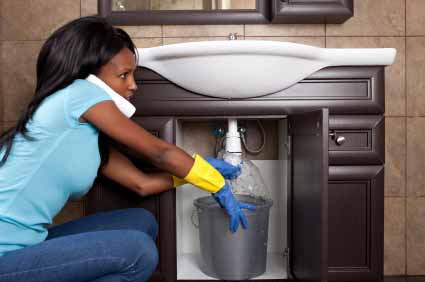Tackling the Frequently Encountered Water Heater Emergencies
Tackling the Frequently Encountered Water Heater Emergencies
Blog Article
In this article down the page you might get a bunch of sensible news relating to The Importance of Water Heater Maintenance.

A hot water heater is among the most essential fundamental devices that can be discovered in a home. With hot water heater, you do not need to experience the anxiety of home heating water by hand every time there is a demand to take a bath, do the laundry, or the dishes. However, there is always an opportunity that your water heater would break down as with a lot of mechanical devices.
It is necessary to keep in mind any type of little malfunction and also tackle it quickly before things leave hand. The majority of times, your hot water heater starts to malfunction when there is a build-up of debris as a result of constant use. As a preventative measure, routine flushing of your hot water heater is advised to avoid debris buildup and prevent useful failure.
Typical hot water heater emergencies and also just how to deal with them
Too little hot water
It may be that the water heater can't sustain the hot water need for your home. You can update your water heating system to one with a bigger ability.
Changing water temperature level.
Your water heater can begin producing water of various temperature levels normally ice hot or chilly hot. There might be a demand to replace either the home heating or the thermostat unit of your water heater.
Dripping hot water heater tank.
In this situation, you should transform off your water heater, permit it to cool down, and very carefully look for the source of the issue. At times, all you require to do is to tighten a couple of screws or pipe connections in cases of small leaks. If this does not function and also the leakage lingers, you could need to utilize the solutions of a technician for a suitable substitute.
Stained or smelly water
When this occurs, you need to know if the concern is from the water or the container resource. If there is no amusing scent when you run chilly water, after that you are particular that it is your water heating system that is damaged. The smelly water can be triggered by rust or the buildup of microorganisms or debris in the water heating unit tank.
Conclusion
Some home owners ignore little warning and also minor faults in their water heater system. This only leads to more damages as well as a possible full break down of your appliance. You need to handle your water heater mistakes as quickly as they come up to avoid even more expenditures and also unnecessary emergency troubles.
With water heating units, you do not require to go through the stress of home heating water manually every time there is a need to take a bathroom, do the laundry, or the recipes. It may be that the water heater can not support the warm water need for your house. Your water heating system might start generating water of different temperature levels normally ice hot or cool hot. If there is no amusing odor when you run cool water, after that you are certain that it is your water heating system that is damaged. The stinky water can be created by corrosion or the accumulation of germs or debris in the water heating unit tank.
Common Water Heater Issues and What You Should Do
What Type of Water Heater Do You Have?
Before we begin it’s first important that you identify the type of water heater you have on your property. There are two main types of water heaters out there: conventional and high efficiency.
Both of these types of products typically use either gas or electricity to heat power. There are also solar water heaters that use a thermal collector on the roof or yard to heat the water.
While these models are not as common, they can cut heating costs in half. In this article, we will focus on conventional and high efficiency.
How Do My Electric and Gas Water Heater Work?
Though they look similar, electric and gas water heaters work very differently. It’s important to know their basic function because often problems can be specific to the heating source.
In the electric model, a thermostat on the side of the machine detects the temperature of the water in the tank. When the temperature needs to rise electricity flows to a heating element suspended in the water.
Gas models also use a thermostat device — typically with a mercury sensor at the tip and an additional sensor called a thermocouple. The thermocouple detects whether the pilot light is on and controls the flow of gas.
When the thermostat drops below the appropriate level gas is released which becomes ignited by the pilot light. The flame heats the bottom of the water tank which causes hot water to rise and cold water to drop.
This natural circulation continues until the water reaches the desired temperature. Then, the thermostat triggers the gas control valve to shut off the flow of gas.
What Are the Most Common Issues and How Do You Fix Them?
https://happyhiller.com/blog/common-water-heater-issues-and-what-you-should-do/

We had been made aware of that editorial about Warning Signs You Need Water Heater Repairs from a good friend on another blog. Remember to set aside a second to share this blog posting if you enjoyed it. We love reading our article about Is Your Water Heater Leaking?.
Contact for assistance. Report this page